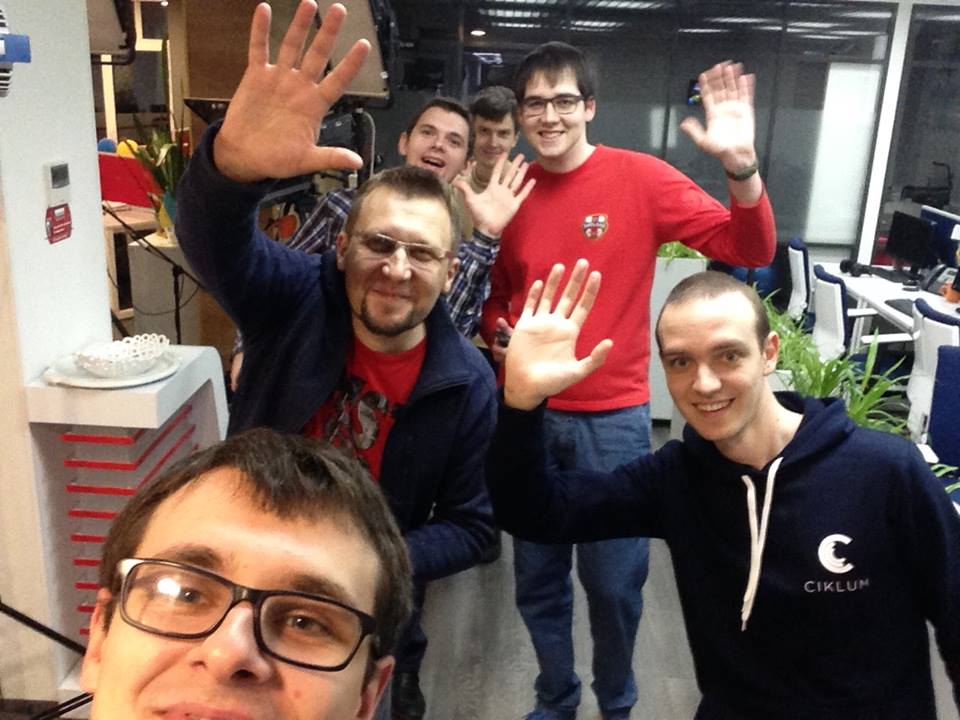The Ukrainian team became the winner of the People's Choice Award in NASA's Space Apps Challenge informs the contest's official website.
The team found out about its victory on May 23, tree days before the official announcement, but the official letter from NASA asked to keep it in secret.
"I hope that we got NASA interested in the project. If it's so, we would like for Ukraine to join it too. When we were developing the project, we considered it: most technologies to implement it are available in Ukraine. It would be wonderful for our country to take its rightful place among the space-faring nations," - Oleksandr Butkaliuk shared his thoughts with AIN.ua.

Now the team is planning to build two prototypes of the invention we created -- for testing on the ground and in the stratosphere.
Additionally, they are preparing for a trip to Cape Canaveral [site of NASA's Kennedy Space Center in Florida - Ed.] to view a rocket launch that will take place on the 8th of September and participate in other program events organized by NASA. The team does not know yet whether all of them will be able to go, since they are responsible for their own travel expenses.
It was difficult to forecast their win. Until the very last challenge on the site, they stayed in the third place with a significant distance to the leaders. Nonetheless, NASA tested the votes using their methods and determined that the Ukrainian team had the highest points.
The MarsHopper team includes: Oleksandr Butkaliuk, Viacheslav Osaulenko, Andrii Muzychenko, Ilya Rubynsky, Pavlo Pravdiukov, Mykola Denysenko and Sofiia Butkaliuk. The project proposes an alternative technology for traveling on the surface of Mars. The guys developed an analog of jetpack and a model of rocketplane using carbon dioxide for fuel.
Before the project's global victory, it was pre-selected by having won the Ukrainian competition in two nominations. Later, it was chosen among 128 international teams to be in the Top Five finals. At that point, the voting became global.
There was another Ukrainian project that got into the finals. It was Asterion-CYA. NASA's experts chose it to be in the Top Five from submissions from the entire world. The main idea of Asterion-CYA is to use a special method to identify asteroids that are dangerous for Earth by employing the machine learning science [watch their video presentation below - Ed.]
More on MarsHopper (from Space Apps Challenge official website)
Buck Rogers aside, Mars is an interesting environment for out-of-this-world mobility options for an explorer. This challenge asks for the definition of a conceptual mobility solution to allow an astronaut to easily and rapidly explore Mars including overcoming obstacles such as cliffs, ravines and other difficult terrain. The solution should be person-portable and any means or source of propulsion be locally produced.
This challenge can be answered by:
- producing an app to simulate your adventures in building your jet pack and flying around Mars;
- produce an app that provides the local gravity, atmospheric conditions (density, weather, anything-else-of-interest) to help decide what is needed for your jet pack design;
- perform a feasibility/conceptual study of an actual jet pack design that could use potential Mars fuel sources; or Design and Demonstrate a model scale jet pack using hardware.
MarsHopper is a plane for investigation of Mars poles and its surroundings. It uses CO2, that in solid form covers surface to create jet thrust. During landing, plane harvest CO2 for next flight and for its deceleration. On the surface plane accumulates radioisotope energy into CO2, by changing it phase from solid to supercritical fluid. Supercritical CO2 is used to create jet thrust for next jump and to create rotation of propellers to sustain flight, hence the name of plane “hopper.”
To demonstrate this idea we estimated a viability of the mission in terms of energy consumption and flight conditions. Our calculations showed that this project is possible with existing technologies. Also, to illustrate the idea we made computer modeling of flight process and made real life demonstration model of plane launched by jet force of CO2.
Who are behind the MarsHopper project?
Pavlo Pravdiukov - Big Data Engineer, took part in physical calculations and as a team-lead. Loves astronomy and music.
Oleksandr Butkaliuk - Mechanical engineer, designer, private entrepreneur. Loves aerospace technologies, boatbuilding, sailing, glider flights.
Sofiia Butkaliuk - Lyceum student, idea generator. Loves space technologies, science fiction, space cartoons, steampunk.
Mykola Denysenko - Producer, chemist, made computer simulation (Unity3D, C#), 3D model. Loves rocketry, photography and game development.
Viacheslav Osaulenko - PhD student at NTUU KPI. Made physical calculations for MarsHopper. Passionate about computational neuroscience and artificial intelligence.
Ilya Rubinsky - Programmer. Assisted in computer simulation development and presentation. Loves to play music and read books.
Andrii Muzychenko - Hardware engineer, computer science tutor. Loves green technologies, aerospace technologies and history.
Additional Info about the Project:
Related:
- Ukrainian Zenit-3SL rocket successfully launches the EUTELSAT 3B spacecraft
- Something to be proud of -- A Ukrainian spaceport and rockets of the future
- Ukraine to regain position in world space and missile industry
- Why Ukraine needs a technocratic government | #UAreforms
- Tell the world about Ukraine: 20 facts from the MFA
- Putin's locusts at work: stripping Donbas of industrial assets

